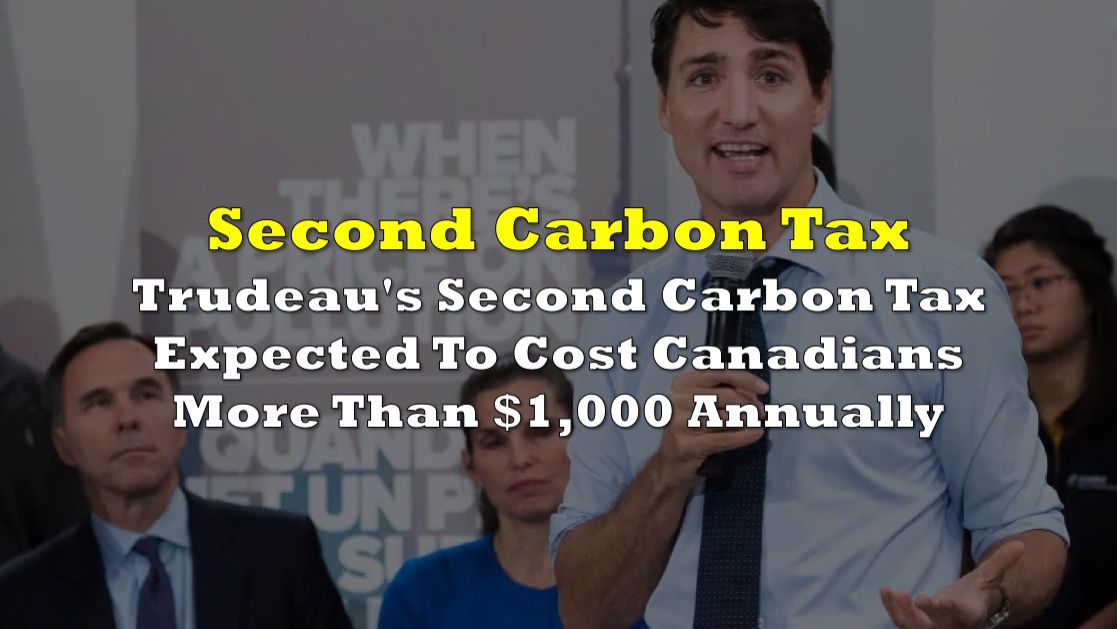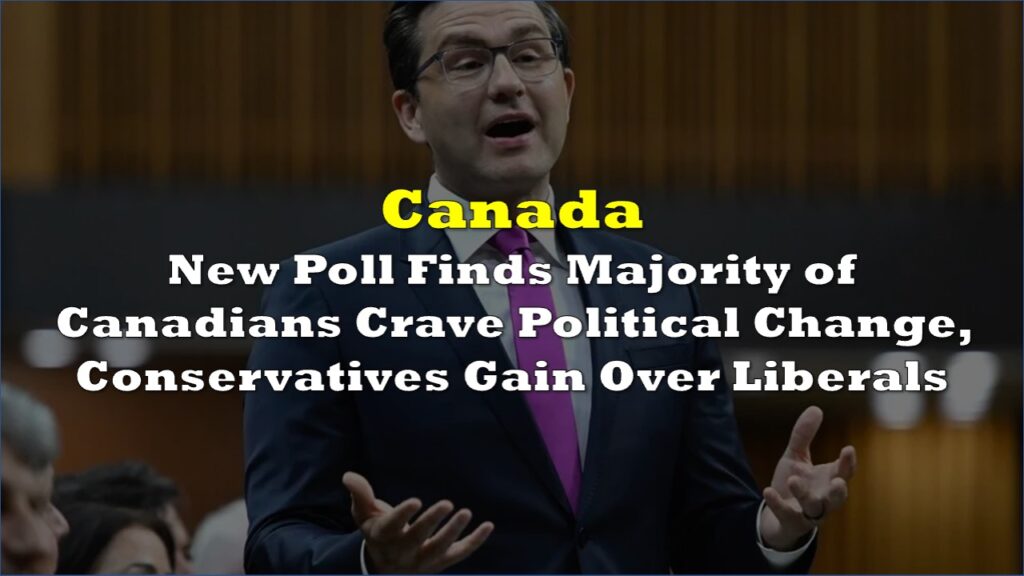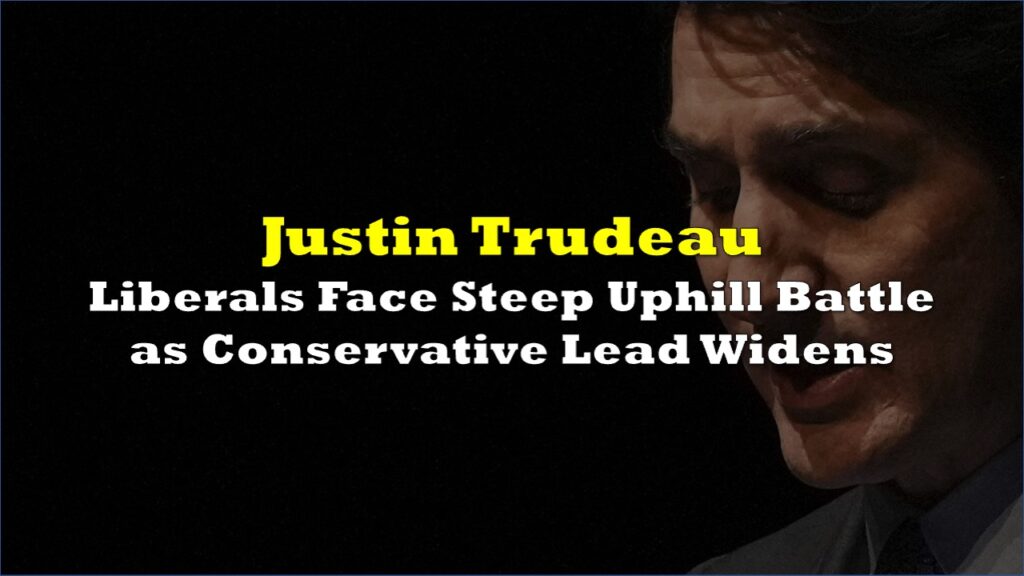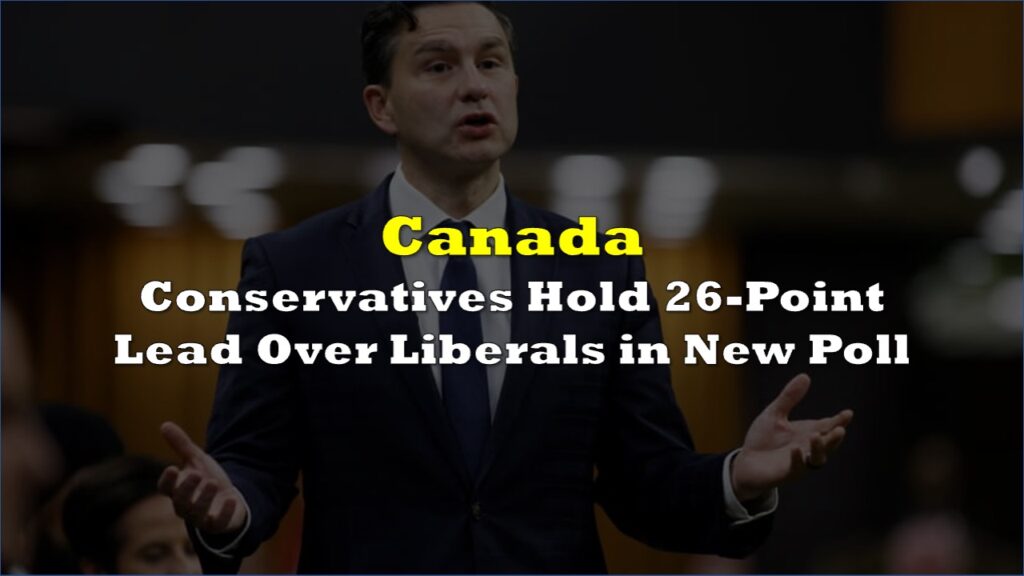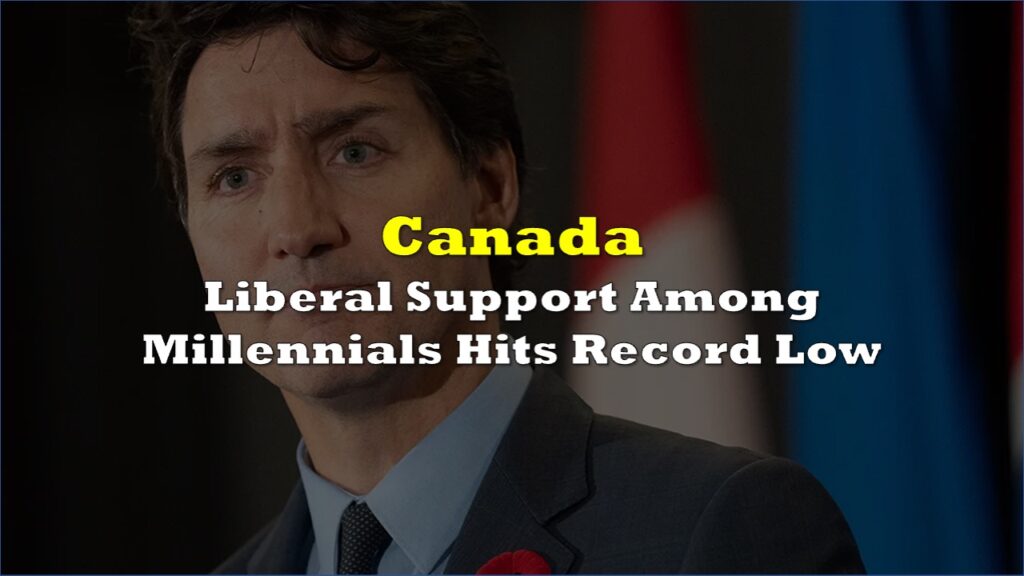The Parliamentary Budget Officer (PBO) released a distributional analysis of Ottawa’s Clean Fuel Regulations between now and 2030, headlined by an estimate of over $1,000 per year in additional tax for Canadian families once Prime Minister Justin Trudeau’s second carbon tax takes effect on July 1.
“At the national level, in 2030, the cost of the Clean Fuel Regulations to households ranges from 0.62 per cent of disposable income (or $231) for lower income households to 0.35 per cent of disposable income (or $1,008) for higher income households,” the report said.
The report called the regulations “broadly regressive,” describing that lower-income households will pay a larger proportion of their disposable income than higher-income households.
“Since lower income households generally spend a larger share of their income on transportation and other energy-intensive goods and services compared to higher income households, on average the Clean Fuel Regulations will have a greater impact on these households,” said PBO Yves Giroux.
The cost of the so-called second carbon tax to the average household in 2030 is highest in Alberta (0.80 percent, or $1,157), Saskatchewan (0.87 percent, or $1,117), and Newfoundland and Labrador (0.80 percent, or $850), reflecting their economies’ higher reliance on fossil fuels.

Estimates also say that the regulations “will decrease real GDP in Canada by up to 0.3 per cent (or up to $9.0 billion) in 2030 when the carbon intensity requirements for gasoline and diesel reach full stringency.”

The Clean Fuel Regulations are a component of the Trudeau administration’s larger goal to reduce greenhouse gas emissions. While the government does not refer to the restrictions as a tax, the result is the same – a fee is levied by the government for policy reasons.
According to Conservative Leader Pierre Poilievre, the Trudeau Liberals are imposing this extra tax at a time when Canadians are already struggling.
“This at a time when bankruptcies and insolvency are on the rise and one in five Canadians are skipping meals because they can’t afford the price of food,” Poilievre said.
You’ve heard of Trudeau’s first carbon tax—the one that will cost 41 cents-a-litre & $1500 per family.
— Pierre Poilievre (@PierrePoilievre) May 17, 2023
Now he plans a second carbon tax—that he calls a fuel standard.
How much more will you pay? pic.twitter.com/3gtWIaQdgI
According to the Office of the Superintendent of Bankruptcies, insolvencies increased by 28% in March, the most recent month for which data is available. Food bank use is increasing across the country, and Trudeau has announced a new “charge” that would add direct and indirect costs to the commodities Canadians purchase.
Earlier last year, the PBO issued a report suggesting that the entire impact of the carbon tax was greater than the Trudeau government claimed.
“Based on our analysis, most households will pay more in fuel charges and GST — as well as receiving slightly lower incomes — than they will receive in Climate Action Incentive payments,” the report said.
Following that report, Lloyd Longfield, a Liberal MP from Guelph, asked Giroux in an open letter to “launch a new study that integrates both sides of the climate ledger” into the budget officer’s assessment of the impact of the federal charge on Canadian household finances. The report showed that most households will see a net loss.
When the two reports are combined, a middle-income household in Ontario will spend $1,771 more per year due to both charges by 2030. In Manitoba, the combined tax increase is $1,130, while in Saskatchewan it is $1,213 and in Alberta it is $1,859 per year.
According to the PBO analysis on the Clean Fuel Regulations, the additional costs will be 17 cents per litre for gasoline and 16 cents for diesel by 2030. Unlike the initial carbon tax, there are no reimbursements for the Clean Fuel Regulations’ increasing costs.
“So there’ll be carbon tax one, then carbon tax two, and then HST on carbon tax one and two, all of which will cost you 61 cents a litre in higher Trudeau taxes every time you gas up to go to work,” Poilievre said.
If elected, the Conservative leader promised to repeal the two carbon levies and allow Canadians to keep more of their own money.
The Canadian Taxpayers Federation also called on Ottawa to scrap the second carbon tax, saying it is going to make life “more expensive.”
“Canadians are already struggling to afford gasoline and groceries and the last thing we need is another carbon tax that makes life more expensive,” said Franco Terrazzano, Federal Director of the CTF. “The PBO is clear: the second carbon tax will cost families hundreds and even thousands of dollars.”
Guilbeault responds
In response, Minister of Environment and Climate Change Steven Guilbeault called PBO’s analysis taking the “same unbalanced modelling approach as they did with the analysis of the price on pollution.”
“Their analysis does not account for technological change and assumes that no new technologies would come on line. That is not a reasonable assumption, especially given the $120 billion clean economy investments our government has made in Budget 2023 alone,” Guilbeault said in a statement.
Statement by the Honourable Steven Guilbeault on the PBO report pic.twitter.com/KXszTpwNrk
— Steven Guilbeault (@s_guilbeault) May 18, 2023
He added that the regulations have been designed to ensure there were no immediate impact on fuel prices, defending the move by saying that the pricing consequences are likely to be minor as 2030 approaches, and pale in comparison to the profits of oil refining businesses, which are charging double or triple their regular profit margins.
“Any price impacts will depend on the choices of oil refiners, who have the flexibility to find the most cost-effective and innovative approaches that work best for them, whether investing in cleaner production or more affordable fuels for their customers,” he rebuffed.
In April, Guilbeault admitted on CTV’s Question Period in an interview that on average, households may end up paying more with the regulations.
“If you do the average, yeah, it’s true, it’s going to cost more money to people, but the people who are paying are the richest among us, which is exactly how the system was designed,” Guilbeault said. “So the rich pay more for their carbon consumption and their carbon pollution, and we’re supporting, through the transition, middle class Canadians and low income Canadians, and that’s exactly what we’re doing.”
Information for this briefing was found via Toronto Sun and the sources mentioned. The author has no securities or affiliations related to the organizations discussed. Not a recommendation to buy or sell. Always do additional research and consult a professional before purchasing a security. The author holds no licenses.

